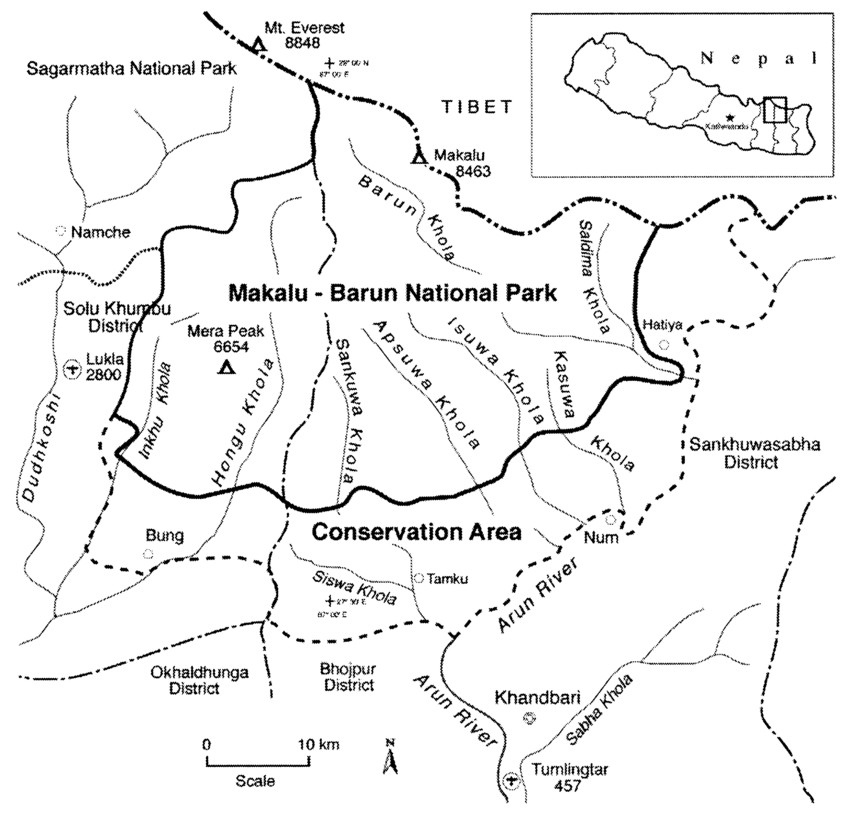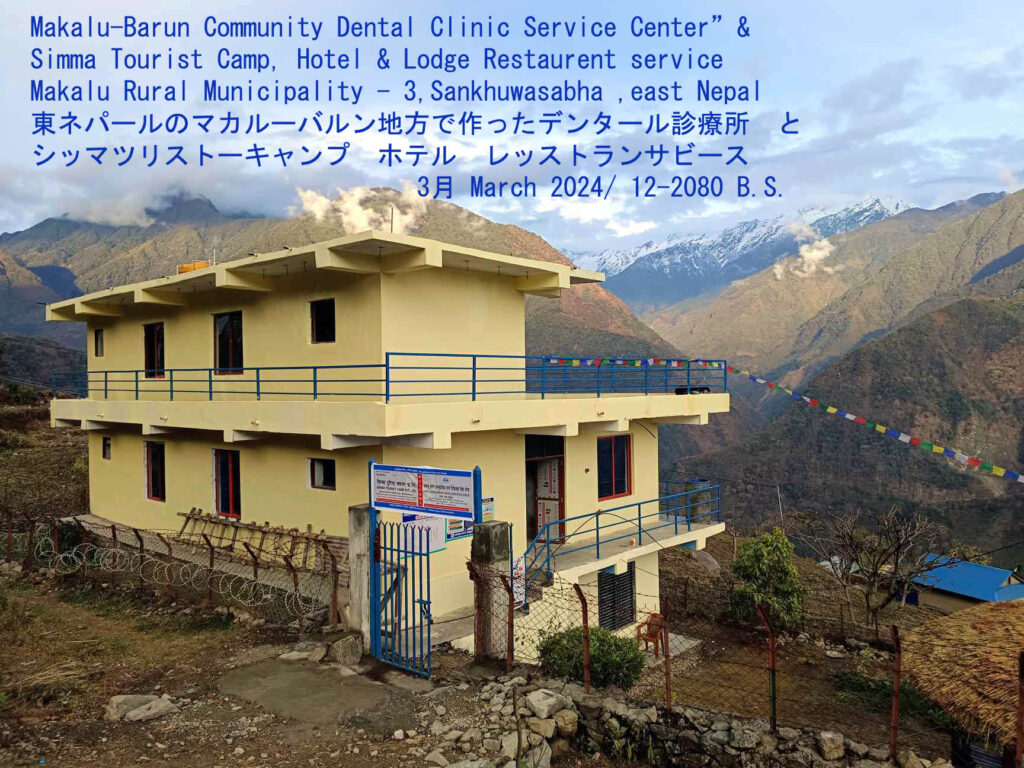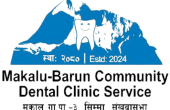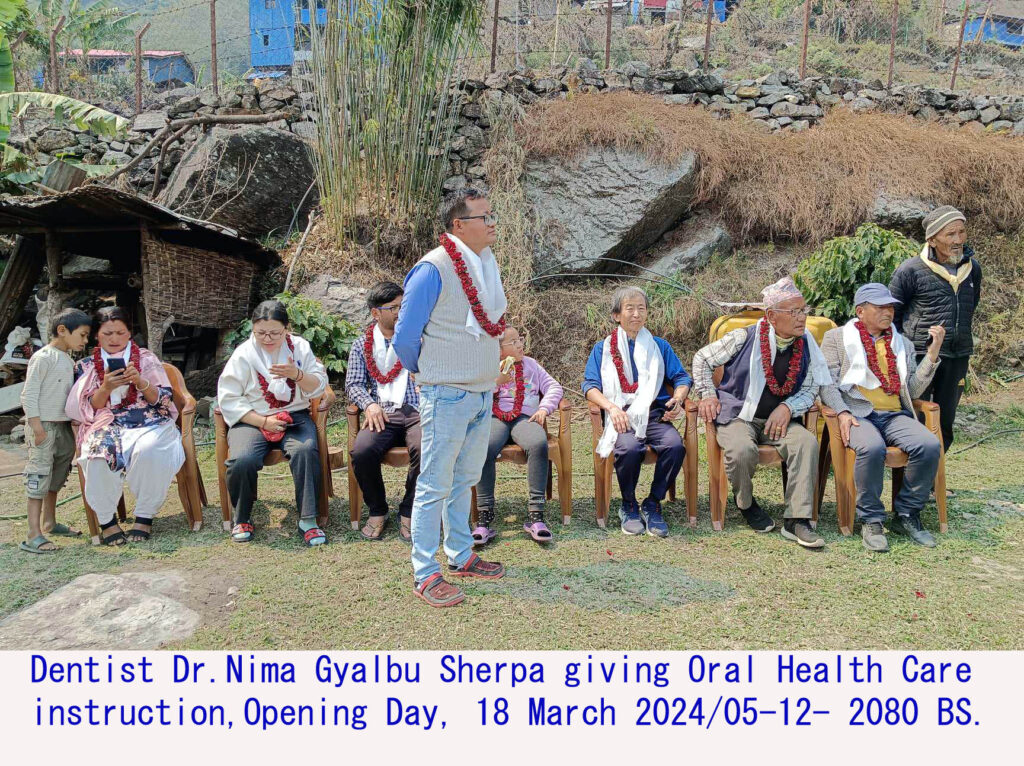Rural Nepal faces a severe oral health crisis, particularly in the Makalu and Bhotkhola Rural Municipalities of Sankhuwasabha district. This region, home to over 23,420 residents, lacks even the most basic dental care infrastructure. A closer look at the data from the Makalu-Barun Community Dental Clinic project highlights the urgent need for intervention and the far-reaching impact such a project can have on improving health and well-being.
Geographical and Demographic Context
Makalu and Bhotkhola Rural Municipalities are part of Sankhuwasabha district in eastern Nepal, a region spanning 519.45 square kilometers. The area is home to a diverse population comprising Rai, Sherpa, Gurung, Tamang, and other ethnic groups. Despite its natural beauty and cultural richness, this region faces significant developmental challenges:

- Population: 23,420 residents.
- Poverty Rate: 26%, with many families unable to afford healthcare.
- Literacy Rate: 69%, indicating limited awareness about health and hygiene.
- Healthcare Access: No dental clinics in the region, forcing residents to travel days to access urban health facilities.
The absence of healthcare infrastructure and financial barriers exacerbates health issues, including oral diseases, which are often neglected until they become severe.
Oral Health Challenges in the Region
A 2022 survey conducted by volunteer dentist Dr. Watanabe Norihiko shed light on the alarming state of oral health in Makalu and Bhotkhola:
- Prevalence of Oral Health Problems: Over 75% of surveyed individuals reported oral health issues, including cavities, gum disease, and tooth loss.
- Impact on Children: Schools reported high rates of dental problems, with many children suffering from untreated toothaches that hindered their ability to concentrate and perform academically.
- Dietary and Behavioral Factors:
- Increased consumption of junk food and sugary snacks.
- High prevalence of tobacco use, contributing to oral diseases.
- Lack of awareness about proper brushing techniques and hygiene practices.
The Cost of Inaction
The lack of dental care infrastructure in the region has far-reaching consequences:
- Delayed Treatment: Residents often wait until oral health issues become unbearable, leading to complex and costly treatments.
- Nutritional Impact: Elderly villagers, unable to chew due to tooth loss, are forced to change their diets, leading to nutritional deficiencies.
- Financial Strain: Families must travel several days to urban centers for dental care, incurring high costs in transportation, treatment, and lost wages.
- Quality of Life: Persistent pain and untreated oral diseases diminish overall well-being and productivity, perpetuating cycles of poverty.
Makalu-Barun Community Dental Clinic: A Data-Driven Solution

The Makalu Dental Clinic project aims to address these challenges by establishing a sustainable dental care facility in the region. The proposed clinic will focus on three key areas:
Treatment Services
- Emergency toothache relief to prevent prolonged suffering.
- Preventive treatments like scaling, fillings, and cavity prevention.
- Long-term care for chronic oral health conditions.
Oral Health Education
- School dental camps to provide free oral health checkups and teach children proper brushing techniques.
- Community workshops to raise awareness about the dangers of tobacco use and the benefits of preventive care.
- Distribution of educational materials to promote healthier habits.
Accessibility and Affordability
- Affordable services tailored to the financial capabilities of local families.
- Portable dental equipment to reach remote schools and villages.
- Reduced need for long-distance travel, saving time and money for residents.
Projected Outcomes and Benefits
The clinic’s impact is projected to be transformative for the region:
| Metric | Current Situation | Projected Outcome |
|---|---|---|
| Access to Dental Care | 0 clinics in the region | 23,420 residents served locally |
| School Dental Checkups | Limited or nonexistent | Regular free checkups and education |
| Emergency Treatment Accessibility | Days of travel to urban centers | Immediate relief within the community |
| Preventive Care Awareness | Minimal | Widespread awareness and adoption |
Sustainability Measures
The project emphasizes long-term sustainability through:
- Skilled Staffing: Experienced dental professionals will provide consistent care, supported by periodic visits from volunteer dentist Dr. Watanabe.
- Community Engagement: Local residents will be trained to support clinic operations and spread awareness about oral health.
- Infrastructure Investment: Durable equipment and facilities will ensure the clinic’s longevity and ability to serve future generations.
The Role of Donors and Volunteers
The success of the Makalu-Barun Community Dental Clinic depends on external support. Contributions are needed to:
- Purchase essential dental equipment, including portable tools for outreach programs.
- Fund the construction and operational costs of the clinic.
- Support educational initiatives to foster long-term oral health improvements.
Here’s how you can help:
- Donate: Every contribution, big or small, helps bring the clinic closer to reality.
- Volunteer: Dental professionals can offer their expertise to enhance the clinic’s impact.
- Share the Story: Raise awareness about the project and inspire others to contribute.
Building a Healthier Future
The data is clear: the oral health crisis in Makalu and Bhotkhola requires immediate and sustained intervention. The Makalu-Barun Community Dental Clinic offers a tangible, data-driven solution to address this pressing need.
With your support, we can transform lives, restore smiles, and create a healthier, more resilient community. Together, let’s bridge the gap in rural healthcare and bring hope to those who need it most.
Join us today—because every action counts, and every smile matters.

